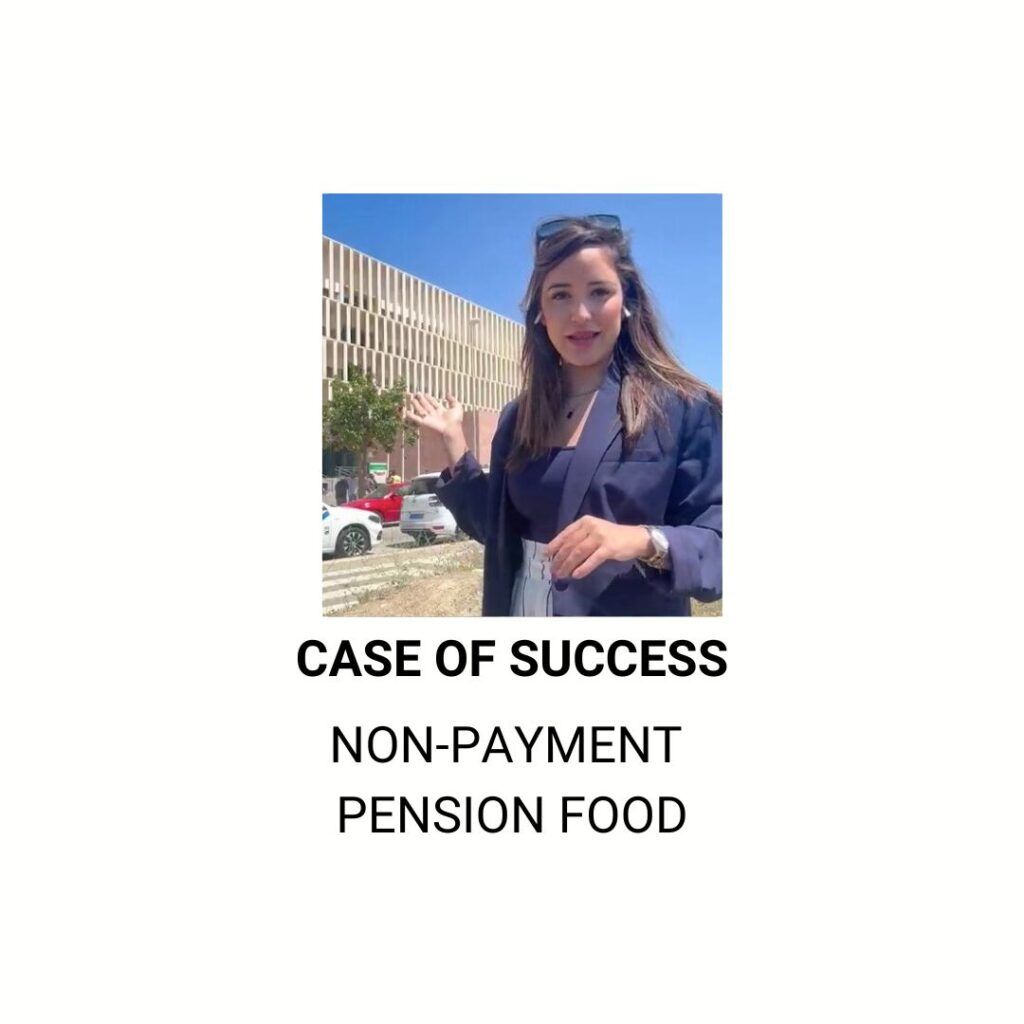Claim for non-payment of alimony of civil alimony and Criminal offense

Non-payment of child support is a delicate problem that can arise in situations of separation or divorce, directly affecting the economic well-being of the children and the spouse who has custody of them.
In this article, we will explore the differences between claiming the amount for non-payment of alimony through civil means and as a criminal offense.
We will address the legal and procedural aspects and the implications of each avenue for those involved.
In addition to commenting on a practical case where the lawyer Teresa Toscano tells us about the success story that you can see in her Instagram video on the account www.instagram.com/toscanolex. about Claim for non-payment of alimony.
Real Success Case on Non-Payment of Alimony Through Criminal Procedure.
From the City of Justice of Malaga, lawyer Teresa Toscano tells us about the success case that she has just achieved.
It is about non-payment of alimony, a delicate situation that we address with professionalism and looking for the best option for our clients.
In this case, the difference Claiming amount for non-payment of alimony through civil means versus non-payment of alimony as a criminal offense.
The most important thing for us and our clients is to win the case and for our client to get paid.
Therefore, in this case, it has been a complete success, since we have managed to demonstrate the seriousness of the breach and obtain the ruling in favor of our client.
Now, our client will be able to collect the alimony that corresponds to him.
As you can see, there is a big difference between non-payment of alimony as a civil claim and as a crime.
Civil Claim for Non-Payment of Alimony
In the civil Claim for non-payment of alimony, the aim is to obtain compliance with the obligation through judicial processes in the civil sphere.
Next, we will analyze the following aspects:
Judicial Process in Civil Procedure: In this phase, the judicial process begins by filing a lawsuit before the competent Court of First Instance.
The plaintiff, generally the custodial parent or the adult child receiving the alimony, will ask the judge to order the person liable to pay (generally the non-custodial parent) to comply with the alimony owed.
Means of Evidence and Hearing: During the process, both parties will present their arguments and relevant evidence. The plaintiff must demonstrate the existence of non-payment of alimony and the amount owed, while the defendant may present his allegations and defenses.
Sentence and Execution: Once the evidence has been evaluated and the parties have been heard, the judge will issue a sentence that may order the defendant to pay the pension owed, as well as the procedural costs.
In the event of non-compliance, the plaintiff can initiate a forced execution process to make the judgment effective.
Non-payment of alimony as a criminal offense
Non-payment of alimony can also constitute a criminal offense, especially in cases of repetition or serious non-compliance.
Next, we will examine this aspect from a criminal perspective:
Classification of the Crime: In the criminal field, non-payment of alimony can be considered a crime classified in the Penal Code.
Generally, non-payment is required to be deliberate and persistent, with the intention of breaching the maintenance obligation.
Differences between Civil and Criminal Procedure: Non-Payment of Alimony
A fundamental difference between the civil claim and the criminal approach lies in the main objective of the process.
While the civil process mainly seeks to obtain compliance with the alimony obligation and recover the amount owed, the criminal process has as its main objective the sanction of the offender for non-compliance with the law.
Furthermore, in the criminal sphere, the State assumes an active role in prosecuting the crime, while in the civil sphere it is the parties involved who carry out the judicial process.
Conclusions:
Both the civil claim and the criminal claim have their advantages and disadvantages, and the choice between one or the other will depend on various factors, such as the severity of the breach, the willingness of the parties to reach an agreement and the expected effectiveness in obtaining results.
It is essential to have specialized legal advice to evaluate the best strategy in each particular case and ensure the protection of the rights of alimony beneficiaries.
At Toscanolex we are specialists in Family Law and Criminal Law, therefore we can provide a broad approach when resolving any case you may be going through.
We will offer you guidance on your rights and assist you in protecting your interests throughout the process.
- Phone: +34 951 20 45 95
- Email: info@toscanolex.es
- Web: https://toscanolex.es/en/
- Instagram: www.instagram.com/toscanolex






